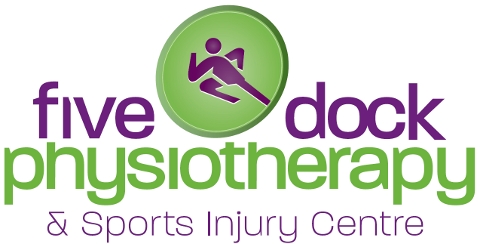Achilles Tendonitis
Achilles Tendonitis Treatment Dulwich Hill
Five Dock Physiotherapy & Sports Injury Centre proudly offer quality achilles tendonitis treatment to residents in Dulwich Hill and surrounding suburbs.
Connecting the ankle joint to the heel, the Achilles tendon is often injured, especially in high impact sports and running.
Achilles tendonitis , literally meaning inflammation of the Achilles tendon, results in pain and sometimes swelling focused at the back of the heel. This often leads to extremely tight calf muscles, and pain upon walking.
Five Dock Physiotherapy and Sports Injury Centre offer quality physiotherapy care for achilles tendonitis.
Causes
This condition often results from overuse and strain over extended periods of time.
Most commonly Achilles tendonitis is the result of too much exercise and over-pronation. It’s important to warm up for sports to minimise strain through the Achilles tendon, especially for sports that require fast directional changes. Achilles tendonitis can also occur from wearing high heels for prolonged periods, a sudden significant increase in physical activity without a graduated approach to training, wearing poorly fitting shoes, having bone spurs on the back of your heels, or just getting older as the Achilles tendon weakens with age! Rheumatoid arthritis and infection are both factors which are also linked to tendonitis.
The main symptom of Achilles tendonitis is pain or swelling on the back of the heel when walking or running. You may also experience tight calf muscles, limited range of motion when the foot is flexed, and the skin on the heel may also be warm to touch.


Treatment
The two main aims when treating Achilles tendonitis are to reduce the strain upon the tendon, and to reduce inflammation.
To reduce strain, activities which aggravate the condition will need to be limited or avoided for a period of time. Orthotics (corrective devices worn in the shoe) may also assist in reducing pressure on the tendon.
Anti-inflammatory drugs may help reduce inflammation, especially when combined with ice treatment. Motion restriction may also help – this can be achieved by using a cast or boot.
Exercises that stretch the calf can also be used but only once the acute stage of the condition is passed.
Surgery is considered as a last resort for the treatment of severe cases of Achilles tendonitis, and is necessary if the tendon needs to be re-attached. Rehabilitation after surgery will generally allow return to normal activity within a period of 10 weeks, and to competitive sports in approximately 3 to 6 months.
